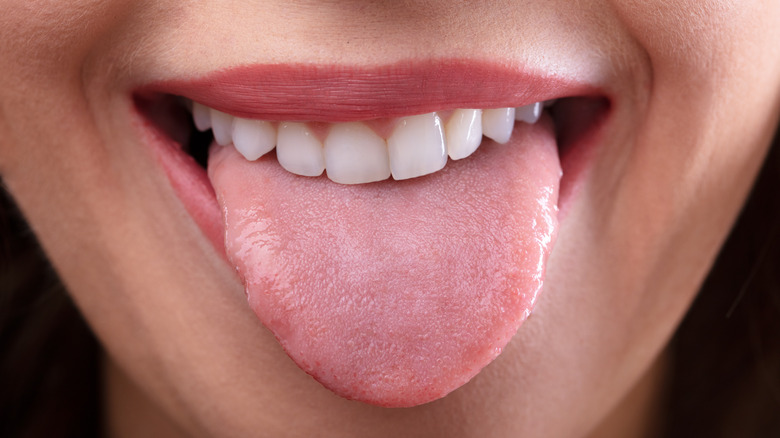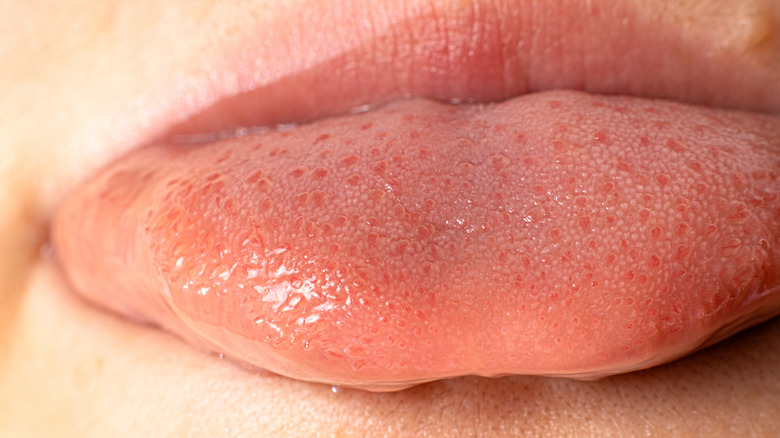What's Really Causing Your Swollen Taste Buds
The human mouth contains about 10,000 taste buds (via Healthline). These small sensory organs mainly line the tongue and allow you to taste flavors from sweet to savory. Normally, you won't be able to feel your taste buds. However, if they become swollen or inflamed, taste buds can cause pain and irritation, which can make it difficult to eat and drink.
There are a number of reasons why taste buds may become swollen. Common causes include eating spicy or acidic foods, irritation from a sharp tooth or denture, and a burn from consuming hot foods or beverages. Acid reflux and GERD, a condition in which stomach acid backs up into the esophagus, can also inflame taste buds if the acid makes it into the mouth. Additionally, allergies and food sensitivities, as well as certain infections like scarlet fever and some viruses, can cause the tongue to swell. Stress, smoking, and vitamin deficiencies are other potential causes of swollen taste buds. Finally, while very rare, inflammation of the tongue can be a sign of oral cancer.
How to treat swollen taste buds
Swollen taste buds are usually not very serious and oftentimes will get better on their own without treatment. If inflamed taste buds are a symptom of an underlying condition, treating that problem should help them return to normal. People with acid reflux, for example, can take an over-the-counter antacid to keep stomach acid from backing up into the mouth. If you have a food allergy that irritates your tongue, avoid foods that trigger symptoms. If you have swollen taste buds and there is no apparent reason, talk to your doctor, who can help identify the cause and come up with a treatment plan.
At-home remedies include holding ice chips on your tongue to reduce swelling, and gargling with a salt water rinse several times a day (via Medical News Today). If you use tobacco, quitting smoking can help alleviate issues with taste. Avoid spicy or acidic foods like hot peppers and citrus fruits if these usually irritate your tongue. Finally, to keep your mouth healthy, practice good oral hygiene by brushing and flossing teeth at least twice a day.


